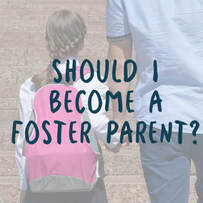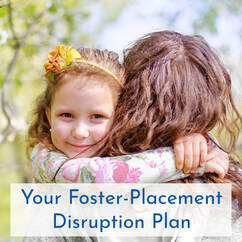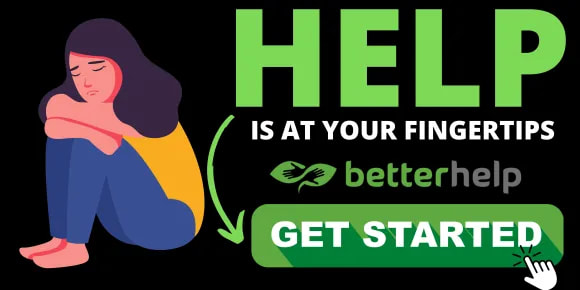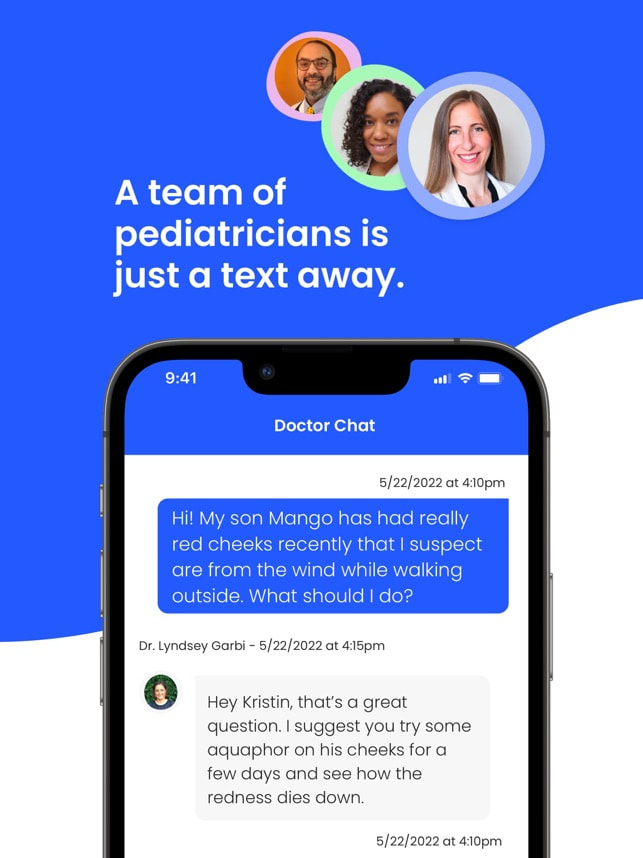|
The internet can sometimes come with its horrors but one benefit is that we can easily connect with the voices of former foster kids. They can tell us what helped them and what didn't. Of course, not every tip or story from former foster youth is exactly applicable to our situation, but we still can and should listen.
Reddit is a great source of some of these stories. A former foster youth posted her 6 tips for foster parents last year that seemed to resonate with many. The post includes several tips I've heard echoed by other former foster youth. Her tips are: (1) Provide free and open access to food. (2) Don't put down bio family members. (3) Don't use physical violence (hopefully this is a no-brainer). (4) Don't give bio kids preferential treatment (also, hopefully a no-brainer). (5) Don't push your religion on your foster kids. (6) Recognize each kid is different. These are great reminders for all foster parents! Read through the full post below for some really helpful intel.
Thanks to this Reddit poster for this advice.
Our bio son was 2 when we finalized our foster license. We specifically wanted to be placed with a child that was a few years older than him. I figured it would take a small adjustment but the kids would quickly love each other and be best friends.
I was wrong—at least about the "quick" part. The first few weeks after our first foster placement arrived, these kids hit, pushed and fought constantly. During one of our foster son's (many) first medical check ups, the doctor asked him how he liked me and my husband; We got a thumbs up. Then she asked how he liked "little brother" and he gave a quick thumbs down. Let me clear, this was more than your normal sibling rivalry. They really seemed so frustrated and stressed out by each other. We were doing everything "right" as far as giving each undivided attention every day, providing fun opportunities with each other, but it wasn't enough. By week three, I had to put our old changing table pad between the two of them in the car so they wouldn't reach over in their car seats (our foster) or hurl a shoe at the other (our bio). I wondered if we had made a terrible mistake. This kept me up at night... but thankfully that gave me time to game plan. Here's what we did that helped them improve their relationship.
It was around this time too that I really started seeing them regularly find joy in each other without my husband or I playing an active role in things. And now, 11 months in as I write this, no lie, I'm listening to them from the other room be so silly and crack up while they're playing together with absolutely no coaching necessary. They seriously love each other like crazy and that fills me with so much joy! What's more, I think about everything they have learned through their relationship (yes, with a lot of support from us) that will benefit them for years to come and maybe their lifetime: How to deal with difficult situations; How to use their words when they want something; How to empathize with other people's emotions; How to appropriately react when they're upset; How to respect someone; and my favorite, how to be a loving sibling.  If you're asking, "Should I foster?"... Let me be clear, I can by no means be the end-all, be-all deciding factor for someone who is considering becoming a foster parent. But I can share some things I would encourage you to consider. Are you fostering to grow your family or fostering because you have love to give to a child in your community? There was a narrative built decades ago that has led some people to believe that fostering is an automatic path to adoption. Maybe it was more likely at one point, but now, the primary goal of fostering is reunification with the foster child’s biological family. That is HARD. I knew it would be hard before I started fostering but now that I’m in it I am fairly certain it will be gut-wrenching. But we'll continue doing it because our goal isn’t to foster to grow our family, our goal is to support a kid who needs it. Are you willing to learn about trauma? Kids in foster care have experienced trauma. Many have experienced trauma from abuse and neglect. They have all experienced trauma from being pulled out of their home (even if it wasn’t the best environment). You cannot expect to apply the same discipline or affection to foster kids that you would biological kids and get the same results. They will have hearts that need to be mended and trust that needs to be built-–no matter the age of the foster child (yes, even newborns). Do you understand the importance of bio families? I often see well-meaning foster parents or adoptive parents who mistakenly think that if they cut ties with bio families, the child will then be free to adjust into their “new” family. Honestly, I had this misconception before we really got into things. But I've learned it doesn’t work that way. Think of a tree: If you cut a tree down and leave the roots behind, it’s very unlikely it’s ever going to grow no matter how much you nurture it. If you are able to carefully and lovingly remove it, roots intact--and THEN nurture it--you have a much better chance of growing a strong tree. In cases where it's impossible to have direct access to bio families, you'll still want to do your best to lift them up with your words and actions. Talk about how much their bio parent's love them. Ask them to share fun memories they had of their time with their bio family. You should be prepared to never talk negatively about bios, no matter the circumstances that put the child in care. If the bio parents are in jail, you can say things like, "Your parent made a bad choice but it's okay if you love and miss them." Are you willing to learn about cultures, traditions etc. other than your own? Children in foster care come from all different races, cultures and backgrounds. Even if they happen to look like you, they may have religious traditions or other identities that are different from yours that you should honor. (While I'm sure it would be ideal for every foster child to be with a family that looked like them and came from the same cultural background, please don't shun a child just because they don't look like you.) It’s okay if you’re different than them, as long as you’re willing to learn about them and help them embrace all aspects of their identity. Can you provide financial support for a child? Foster kids typically come with a stipend, but it does not typically cover 100% of their costs for food, clothes, school supplies, utility increases, special activities, etc. You need to be sure your budget isn't so tight that going over your stipend by a few hundred dollars here and there would put you and your family in financial ruin. Can you provide the child with structure for their development? I often worry if my husband and I have enough time to give to our fosters between our full-time jobs, biological son, and other roles and responsibilities. But I remind myself it’s not just about the quantity of time, it's about quality. As long as we’re providing time for bonding, access to needed health resources, access to food, consistent schedules, opportunities for socialization, opportunities for learning, and love (more on this next), that is much more important than quantity of time. Do you have love to give to a child with trauma? While you don’t have to be perfect to be a foster parent, you should be able to freely love others and have the mental stability to be able to help a child with trauma get through their challenges. Sure, hugs go a long way, but what children in foster care ultimately needs is someone to be their rock in a sea of change in their life.  Some real talk here... When you foster, you're typically told you have an "out" if things go really bad. It's usually a 30-day notice to your agency or CPS that you can no longer care for the child. Maybe it gives you some solace to know you have an "out" when you're making the life-changing decision to foster. But here's what I wish every agency gave you with that information... a plan for how to prevent placement disruption. Disruption is just that: disruptive to the child--a child who has already had their life turned upside down, sometimes multiple times--and it should be avoided at almost all costs. First, you should know that most current or former foster parents have had that moment where they felt like they may have made a giant mistake (I talk about mine here). Recognize that that's normal. It doesn't make you a terrible person or a foster parent, it makes you human. I feel like most biological parents even question if they're right for the job at least a time or two (if not many more). Accept that it will likely happen so you can and should plan appropriately. 1. Before you foster, prepare yourself for what trauma and trauma-based behaviors look like. It's of course impossible to be prepared for every scenario, but read books about trauma, watch videos about trauma and do know that it is going to be tough. If you're fostering with a partner, have conversations about this together to make sure you're aligned. If you have bios or permanent kids in the house, understand going into it that these trauma-based behaviors (and having a new kid in the house in general) WILL impact your bio, so create a plan of action to ensure everyone has the opportunity to feel safe and loved in the house. 2. When the child is placed with you, have their physical and mental needs assessed and get treatment as needed. Therapies, while they will keep you busy, are your friend. They will (or should) help your foster child progress in their area of need which will help you keep your sanity. 3. Build a trust-based relationship with the child. You cannot expect a child who has just been ripped from the life they knew to suddenly love you and be bonded to you because you provided a roof and meals. Find age-appropriate ways to bond with them. Lift them up and encourage them. Help them deal with their fears and worries. 4. Accept help from others. Did a friend offer to bring meals? Accept. Did your dad offer to keep an eye on the kids so you could get some things done around the house? Accept. This will allow you to put your focus on #2 & #3. 5. Ask for help. This one is hard for me too but it has to be done. Do you need time off of work to be able to catch up on paper work? Request it. Do you need your partner to step it up a bit on the home front (even if they're already doing a lot)? Request it. Do you need to utilize respite care? Request it. Do you need your sister-in-law (who always says she's available to help but you feel guilty asking her) to pick up your bio from school so you can get your foster to the doctor? Request it. Again, this will allow you to put your focus on #2 & #3. 6. Find free resources. There are resources in the community for foster parents for a reason. Use them. Check to see if your state offers childcare assistance. Often pre-k aged foster kids qualify for free pre-k. All foster kids qualify for free lunch. Kids with special needs qualify for transportation to and from school. Foster closests are available in many communities. Some attractions and activities even offer discounts to foster families. Take advantage of this so you can...(see number 7). 7. Pay for help. Especially in the beginning, see if you can make it work financially to have someone come over every once in a while to help clean the house. Or see if you can regularly schedule a baby sitter to help with the kids. Maybe you just seriously need help with laundry and have a good laundry service near by. If it makes you feel better, think of it as stimulating your local economy! 8. While this coincides with #5 & unfortunately #7, seek therapy for yourself as needed. Your employer or your partner's employer may have an Employee Assistance Program that offers free sessions. Get a free week of therapy via BetterHelp here (affiliate link). Make a commitment here and now that you wouldn't send your foster child away for anything that you wouldn't send your bio away for (if you don't have a bio, think of a friend/family member with a bio, and think what behavior you would deem appropriate for sending their kid away). This can feel extreme—maybe like you lost that "out" that you had as a foster parent—but is the type of commitment kids in foster care need. Anything less has the risk of being more detrimental to the kids you agreed to help. |
AuthorI'm a foster mom, bio mom, working mom, special needs mom, busy mom. I'm also married to my high school sweetheart, I'm a proud 23-year childhood cancer survivor, and I'm passionate about serving my community. More from FosterMamaArchives
March 2023
Categories
All
|



 RSS Feed
RSS Feed